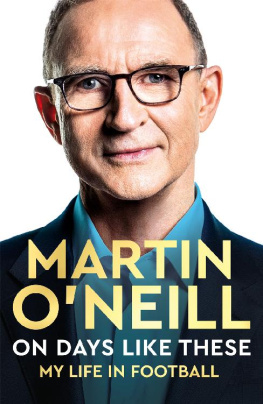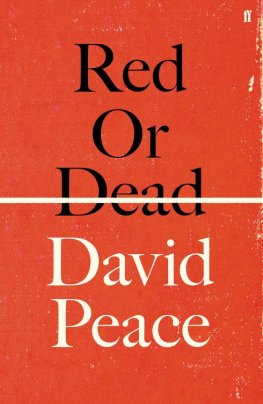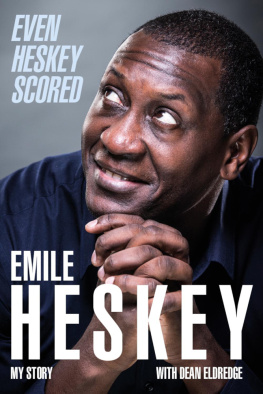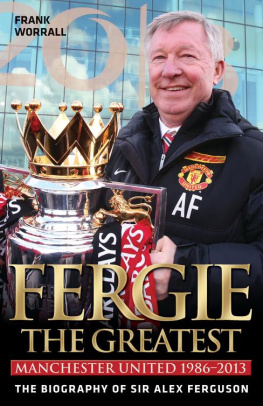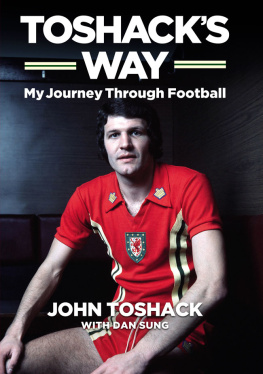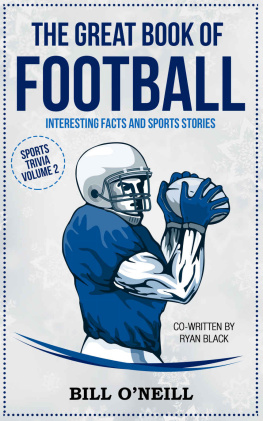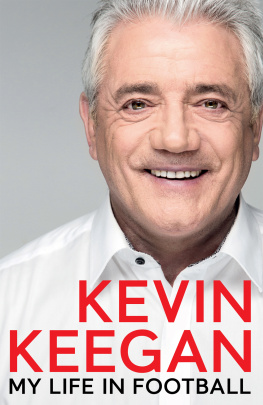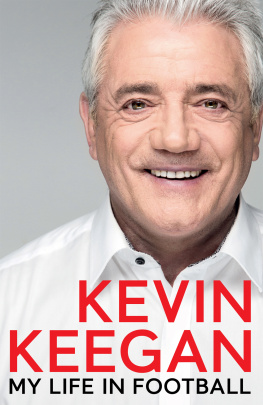MARTIN
ONEILL
ON DAYS LIKE THESE
MY LIFE IN FOOTBALL

To my wife Geraldine, my two daughters Aisling and Alana, my granddaughter Caragh Gene and my wonderful sister Mary, who sadly passed away recently.
CONTENTS
INTRODUCTION
It is the European Cup final of 1980. I have promised myself during the last fortnight that I am determined to enjoy these moments regardless of the result. But I know in my heart that its complete balderdash. Winning tonight is the only thing that matters; actually, winning is the only thing that ever matters.
Hamburg are strong favourites to beat Nottingham Forest despite us being reigning champions. They have Kevin Keegan in their ranks as captain. And we have lost last years game-winner, Trevor Francis, to injury. So superstitious have I become that I follow the routine from when I last played really well. Left sock first, that never changes, then right sock. My heart is pounding and I feel entirely different from last years final in Munich.
Back then I thought that the chances of ever playing in another European Cup final were remote. George Best and Bobby Charlton only ever got to play in one final. And Denis Law didnt even play in one at all. How must he have felt in 1968 when injury precluded him from Manchester Uniteds winning team? If we win, everything that has happened to me in my professional career will have been worth it. The struggles for recognition, for approval, for respect. Its been a long road since setting foot in England that bright Wednesday morning in October 1971, full of self-confidence and bravado. A bright beginning, but also many dark days. I now have a chance to put everything right. But only if we win.
As we climb into the floodlit arena, the cacophonic roar of the crowd almost splits our eardrums. We quickly get the game in motion. Hamburg dominate possession in the early stages. Kenny Burns puts in a couple of heavy challenges, Keegan objects to the referee and Peter Shilton makes a good save. Its looking tough for us and theres little respite, but if we can survive this period without conceding a goal, it will be some sort of small victory. We do and we start to build a little momentum of our own.
And then we score. John Robertson plays an inside pass to Garry Birtles, gets the return and then rifles a shot into the bottom corner of the net.
We are in front. Im too drained to run to congratulate him but I join the huddle we have made around our goal-scorer. Its the first goal, a very important goal. However, there is far too long in the game to go to call it decisive.
The rest of the first half seems to blur its way to half-time. In the dressing room, Brian Clough is thinking about making a positional switch. I volunteer to move wherever he wants me to. No, he says. Im not moving you, son, youre doing brilliantly exactly where you are.
Im not expecting such high praise to come in my direction. All these years Ive searched for his approval, and he waits until half-time in the European Cup final to give it. I have validation at last. And with those words, energy of which I thought I was bereft jolts through my whole body like an electric current. Im ready for anything these next forty-five minutes can throw at me.
Hamburg press forward again but, urged by our fans to keep going, we repel their attacks. The spirit within the team, always strong, reaches stratospheric levels, and if we can see out the last six minutes, the European Cup will be ours. Six minutes become four, become two, and then a whistle blows. Its all over.
I fall to my knees and clench my fists. Its an incredible moment of triumph.
From landing at East Midlands Airport that October morning in 1971 to this moment in a brightly lit Santiago Bernabu Stadium in Madrid, every word of splenetic criticism along the way doesnt matter any more. Last years personal heartache in Munich is washed away. Soon I will collect a European Cup medal that I have earned on the field.
John McGovern lifts the trophy, holds it aloft, and points in the direction of our fans. They too have played their crucial part in the last few heady seasons.
We get back to the dressing room and excitement still burns within. We now want to hear from the man who made this all possible: Clough. On this evening of all evenings, we need to know his take. We pulled ourselves back from the brink of disaster in East Berlin, we faced a torrid twenty-five-minute barrage in Amsterdam, and we came through. And this evening in the Madrid heat, we have withstood everything thrown at us and emerged victorious.
The most precious prize of club football now sits on the floor in front of us, having been carefully placed there by the enigmatic Brian Clough.
He tells us that we have been magnificent all evening. Johns goal may have given us the lead but he emphasizes that this is a team win. He hails how we threw ourselves into tackles regardless of personal safety, how we blocked so many shots inside and outside the penalty box. He reminds us that these are the reasons why this trophy is in our dressing room and not down the corridor with Hamburg.
A year ago almost to the day, I threw a box containing a European Cup medal across a massage table in Munich thinking that a day like this could never happen for me. Well, it has, and its better than anything Ive ever imagined.
Since Brian Cloughs arrival, Nottingham Forest have in the course of three seasons won promotion to the First Division, taken the title at the first time of asking, won a League Cup the same season, taken on the best in Europe and won the big prize, and retained the League Cup. And then, to cap it all, we have gone back to Europe once again and, on a warm evening in Madrid, won the European Cup for a second successive year. This is the legacy of this East Midlands city. If I could live to be 1,000 years old I would never see this again in football. That is how big these achievements have been. And I was privileged to be part of this football history.
Brian Clough breezed through the city of Nottingham in the mid-1970s. A man on a mission. Stick close to his coat-tails or fall by the wayside that was his message right from the beginning. He waited a while at the turnstile for his trusty lieutenant, Peter Taylor, to join forces with him. Together, this greatest partnership in football cajoled, encouraged, lambasted and sometimes charmed their charges into following their path to triumph and glory.
I admit I found the lambasting occasionally difficult to deal with, particularly when I felt it wasnt merited. But the smell of success mitigated the censure, warranted or not, especially if the prize at the end was worth it. And the European Cup was certainly worth it ask any footballer.
I dont believe football management ever really entered my head until a chance meeting with Peter Taylor sometime after he himself had retired from the game.
He prevailed upon me into thinking seriously about it. He and Clough had their own distinct style of management and there was a lot to admire in their method. League championships with two different clubs and two European Cups suggested they didnt get too many things wrong. Would I, if given an opportunity, do things in the manner in which they operated? Possibly, possibly not. Brian Clough preached simplicity at all times. This approach made perfect sense to me. Dont overcomplicate matters when there is little need to do so. Know your job first and foremost; everything else follows. Then do it to the best of your ability. Every game. Yes, every game.
Sometimes it was not what he said but how he said it. Clough was a brilliant orator and he knew his subject inside out.

